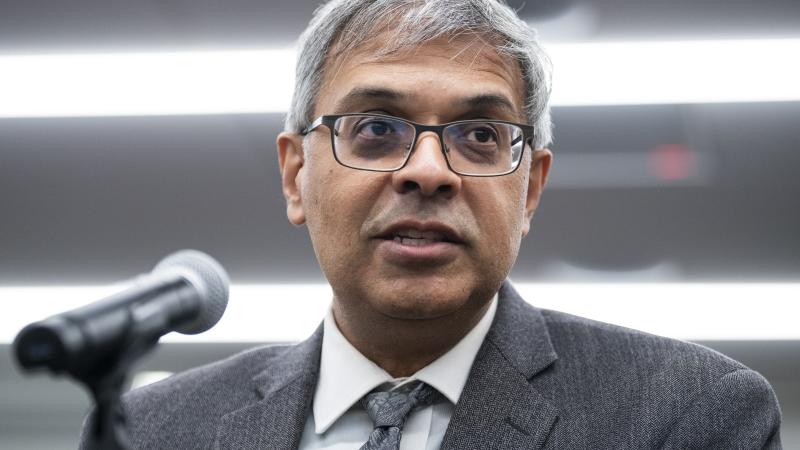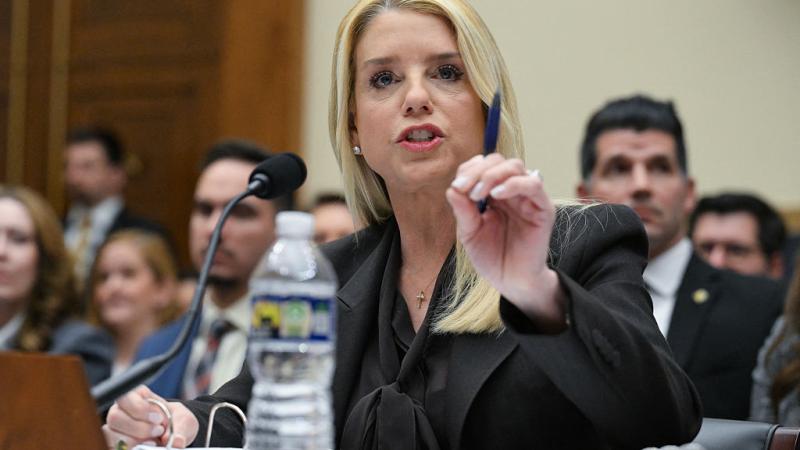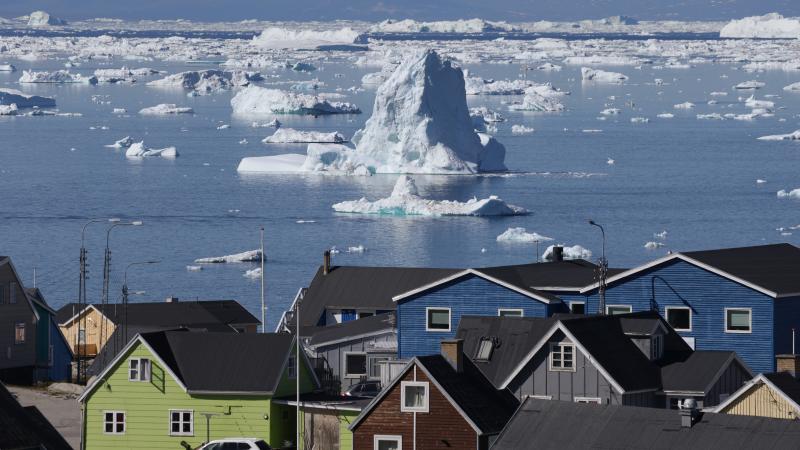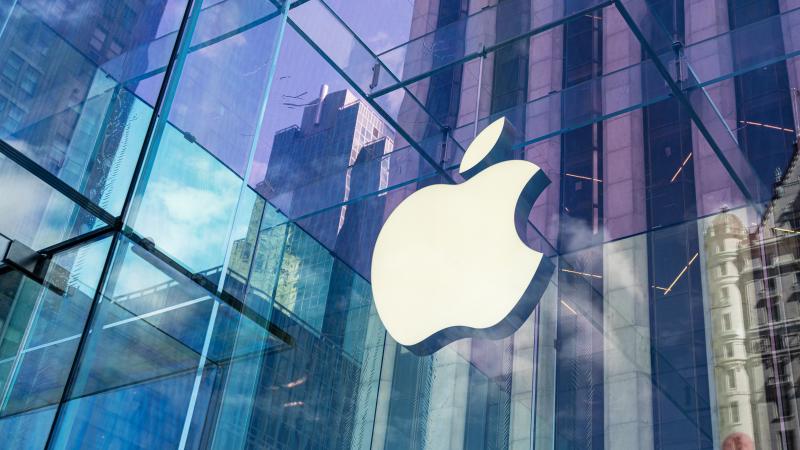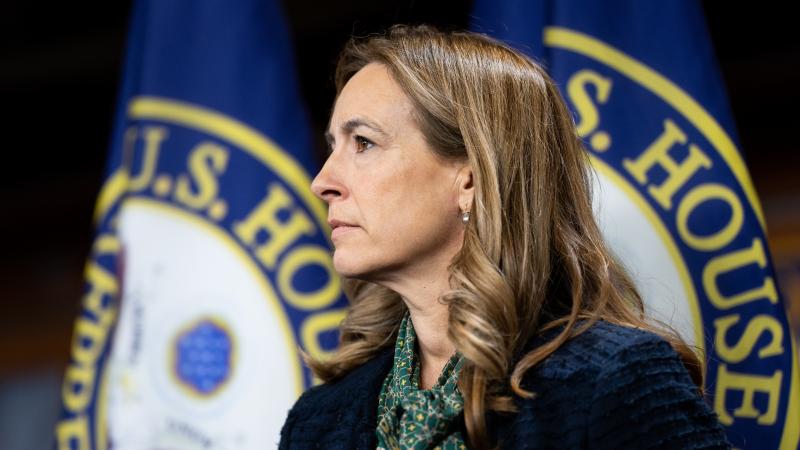The road not traveled: How Big Science skipped clinical trials after past coronavirus outbreaks
'There was no economic incentive for pharmaceutical companies ... and governmental attention' drifted elsewhere, former HHS boss laments.
Since the COVID-19 pandemic burst upon the world, scientists have been scrambling to conduct clinical tests on possible treatments, both old and new, like HIV cocktails, remdesivir, and anti-malaria drugs. Their answers are weeks or months away, even as the disease spreads and claims more lives now.
But it didn't have to be this way, experts say. Government and private scientists could have taken the lessons and promising indicators gathered from prior coronavirus outbreaks dating to 2002 and turned them into clinical trials for the medicines that showed the most hope.
But instead the scientific world bet that the next big pandemic would emanate from a more traditional flu and not a coronavirus like Sudden Acute Respiratory Syndrome (SARS) or Middle East Respiratory Syndrome (MERS).
That bet proved wrong in 2020.
"A lot of opportunities were missed," said Dr. Carlos Del Rio, a professor of medicine in the Division of Infectious Diseases at Emory University and Professor of Global Health and Epidemiology at the Rollins School of Public Health. "A lot of opportunities were squandered. Global pressure was not where it should be."
Experts said the decision to prioritize a pandemic flu over the coronavirus was based on risk assessments, some which failed to adjust to the reality that a growing economy and increased airline travel in recent years changed some of the risk assumptions.
"We knew a pandemic was coming at some point," said Dr. Sarah Fortune, Professor of Immunology and Infectious Diseases and chair of the Department of Immunology and Infectious Diseases at Harvard T.H. Chan School of Public Health. "Given our experiences with SARS1, MERS versus the various modern flu epidemics, I do not think it was unreasonable to put our bets on flu. And in many ways, the investments that we made — and those we failed to make — in flu preparedness are bearing fruit now."
Hal King, the chief executive officer for the nonprofit Public Health Innovations and an infectious diseases scientist formerly at the Center for Disease Control and at Emory University School of Medicine, agreed.
"I believe the COVID-19 pandemic was more difficult to prepare for because the majority of the global preparation before this was centered on pandemic flu," King told Just the News. "Pandemic Flu was expected to spread much faster and become more lethal because of the natural spread by birds across continents and via significant human travel by air (of which the models predicted it to kill millions quickly). COVID-19 does not spread across continents by natural spread via birds but only via human to human contact, which we would expect to be more easily containable."
"However," he continued, "because air travel has so significantly increased in the last 10 years, we need to rethink preparedness (including drugs, diagnostics, and vaccines) for all human to human infectious diseases that could be pandemic."
This tale of inaction and inertia dates to a period after the 2002-03 eruption in China of SARS, a coronavirus sister to today's pathogen. After the SARS virus peaked, the Chinese Ministry of Health invited scientists, researchers, and doctors to participate in reflective discussions about what was learned and what could be done to thwart future pandemics.
Barry Bloom, an infectious disease researcher and Harvard professor, was one of the attendees and remembers a clarion call to close wildlife markets known to spread the coronavirus to humans.
“Everyone knows they are extremely dangerous,” Bloom said.
And yet the markets, after a brief pause, were allowed to resume operations.
Equally alarming was the lack of followup after early drug studies found some promising treatments that worked anecdotally during the SARS outbreak in 2003, two smaller coronavirus outbreaks in 2004-05, and MERS in 2012. The anti-malarial drug known as chloroquine was one of a handful flagged as a potential treatment.
One such study in 2005 found “chloroquine has strong antiviral effects on SARS-Cove infection of primate cells. These inhibitory effects are observed when the cells are treated with the drug either before or after exposure to the virus, suggesting both prophylactic and therapeutic advantage.”
The 2005 study concluded: “Chloroquine is effective in preventing the spread of SARS CoV in cell culture. Favorable inhibition of virus spread was observed when the cells were either treated with chloroquine prior to or after SARS CoV infection.”
Similarly, in 2009 the University of Leuven in Belgium published “Antiviral Activity of Chloroquine against Human Coronavirus OC43 Infection in Newborn Mice,” which warned of a failure to follow up on possible treatments.
“Although coronaviruses have been recognized as human pathogens for about 50 years, no effective treatment strategy has been approved," the authors wrote. "This shortcoming became evident during the SARS-CoV outbreak and was the start of numerous studies. Nevertheless, 5 years after the outbreak, we are still lacking an effective, commercially available drug. Chloroquine is a clinically approved drug effective in malaria, and it is known to elicit antiviral effects against several viruses.”
Such promise and warnings never translated into action, and as a result more detailed clinical trials that could validate or rule out treatments were never carried out.
To understand why, former Health and Human Service Secretary Tom Price said, one must understand the economics and psychology of private and government medical research.
One-time treatments that have no long-term commercial market don't excite pharmaceutical companies in the business of making profits. And federal scientists always like jumping to the next big viral fire instead of finishing work on an earlier outbreak that fizzled like SARS, he explained.
“One would think that those studies would have been completed before now," said Price, a doctor himself and a former congressman. "However, the extent of SARS was relatively small and short-lived. Once the threat passed, there was no economic incentive for pharmaceutical companies to complete human trials, and governmental attention, research and inertia moved in a different, seemingly more urgent, direction.”
Defenders of the science community offer a variety of explanations, ranging from a desire for more funding to a lack of available infected patients. But in the end, hindsight shows Big Science made a bad bet.
"We need a lot of testing with chloroquine and hydroxychloroquine," Del Rio said. "There are multiple faults and in the end, we were woefully unprepared. Even closing down all the wildlife markets won't be sufficient as that raises the question how to feed people. Then we have to think about hunger."
In the end, Del Rio said, infectious disease specialists need to face the "politics and economics" of pandemics and not just the science.
Spokespeople for the major federal science agencies declined to engage in the debate. The Centers for Disease Control said the job of clinical testing should have fallen to the National Institutes of Health infectious disease team and the Food and Drug Administration. “Clinical trials and treatment are not in CDC’s lane," spokesman Benjamin Haynes responded.
FDA declined comment. NIH said it was too busy fielding media calls on the current epidemic to address the lack of past clinical trials. “Unfortunately, due to a high volume of media inquiries, NIAID is unable to accommodate your request" for comment, spokeswoman Elizabeth Deatrick said.
According to Dr. Karladine Graves in Kansas, Mo., the primary pharmaceutical companies manufacturing hydroxychloroquine include Sandoz, Teva, Watson, and Mylan, which merged with Pfizer. Mylan has a regional headquarters in Shanghai, China. Chloroquine is produced by Bayer, Wie YU Pharmaceuticals, and Mylan.
“Since these medications have been generic for many years, companies are not interested as the profit margin is very low,” Dr. Graves told Just the News. “Before this all started, the wholesale price was around 0.04 per tablet.”
Several drug companies have been donating chloroquine to the United States in recent days, and President Trump has urged doctors to consider using it. But the NIH's chief infectious disease specialist, Dr. Anthony Fauci said it is too soon to tell if the drug will work because of the lack of clinical trials that weren't conducted in the decade before.
Dr. William Schaffner of Vanderbilt University agreed with Fauci.
"There must be an assurance that drugs are safe and effective before they can receive a secure recommendation that they be used for the treatment or prevention of an illness," he said. "Laboratory testing, evaluation in animals and anecdotal observations in a few patients are no substitute for prospective rigorous clinical trials."
To put the COVID-19 analysis into perspective and context, Dr. Schaffner compared COVID-19 to the early days of AIDS research. "Our experience with treatments for AIDS is a vivid reminder that patients ultimately benefit from treatments based on science. Many drugs and other methods were promoted as AIDS treatment, resulting in confusion and uncertainty. It was only when rigorous clinical trials demonstrated most of these to be ineffective and/or unsafe that the modern era of effective drug treatment could begin."
"So it is with COVID-19," Dr. Schaffner continued, "anecdotes about drug treatment have spurred the initiation of rigorous studies. The results of these studies are awaited eagerly; they will determine whether the drugs currently under study can provide therapeutic benefit to patients with COVID-19."
Much like chloroquine, an experimental drug known as remdesivir began to show promise during the MERS outbreak years ago, but it too never got to clinical trial stage.
Dr. Peter Ching-Hong, professor of medicine and director of the transplant infectious disease program at the University of California, San Francisco, who has administered to COVID-19 patients, recently told the magazine Healio he has requested remdesivir for compassionate use.
As widely reported, Gilead, the pharmaceutical company that produces remdesivir has suspended compassionate use requests for the drug. Dr. Ching-Hong praised the approach as “a good thing overall” because it diminishes the bureaucracy to get the drug to the patients since a doctor does not have to request the drug anew each time for each individual patient.
“In the proposed plan, you would do it once,” Chin-Hong said to Healio. “Every site that signs up for this, the company will send them drugs to have on hand, so when the patient signs a consent form that’s been approved by the local institutional review board, you order it like you would any other drug. You don’t have to wait days.”
Dr. Stanley Perlman, an immunologist, runs a lab at the University of Iowa where virus studies are currently being conducted. He told National Geographic that the only drug he would hang his hat on is remdesivir.
Last Friday, the World Health Organization (WHO) announced a large global trial, called Solidarity, to find out whether any drug can treat COVID-19. Hospitals treating COVID-19 patients can participate.
WHO now says it is willing to examine unapproved drugs that have performed well in animal studies connected to SARS and MERS.
If the drugs work to slow or kill COVID-19, they may save lives, and serious consideration may finally be given to distributing them prophylactically to health care workers and those at high risk of infection. If effective, they may reduce the burden on hospitals’ intensive care units’ bed shortage and protect the health workers who were severely impacted during the SARS outbreak.
WHO’s Solidarity program will focus on the therapeutic drugs remdesivir, chloroquine and hydroxychloroquine, ritonavir/lopinavir, and interferon-beta, several of which have showed early promise, as reported previously by Just the News.
Just a few days ago, UK Telegraph reported that the University of Oxford enrolled its first COVID-19 patient who will be treated with an HIV drug or steroid as part of trial to see if existing medications can beat the infection. Chief Medical Officer Chris Whitty has expedited this trial with hopes of enrolling more patients with a goal of signing up thousands in the coming weeks. Normally, it would have taken 18 months to set up, but by cutting through the red tape, this trial was up and running in nine days.
In October 2019, just several weeks before COVID-19 erupted in Wuhan, China, the Gates Foundation, the World Economic Summit, and John Hopkins Center for Health Security hosted a pandemic response simulation in New York City. Their seven recommendations were prophetic and serve as a reminder of what the global markets are currently experiencing and what some recommended but many ignored:
- "Governments, international organizations, and businesses should plan now for how essential corporate capabilities will be utilized during a large-scale pandemic."
- "Industry, national governments, and international organizations should work together to enhance internationally held stockpiles of medical countermeasures (MCMs) to enable rapid and equitable distribution during a severe pandemic."
- "Countries, international organizations, and global transportation companies should work together to maintain travel and trade during severe pandemics. Travel and trade are essential to the global economy as well as to national and even local economies, and they should be maintained even in the face of a pandemic."
- "Governments should provide more resources and support for the development and surge manufacturing of vaccines, therapeutics, and diagnostics that will be needed during a severe pandemic."
- "Global business should recognize the economic burden of pandemics and fight for stronger preparedness. International organizations should prioritize reducing economic impacts of epidemics and pandemics.
- Governments and the private sector should assign a greater priority to developing methods to combat mis- and disinformation prior to the next pandemic response."
- The simulators called upon "leaders in global business, international organizations, and national governments to launch an ambitious effort to work together to build a world better prepared for a severe pandemic."
It's too late for these lessons to have affected the start of the 2020 pandemic. The lone question is whether the scientific community will adjust to ensure the response to the next outbreak doesn't suffer the same shortcomings.


